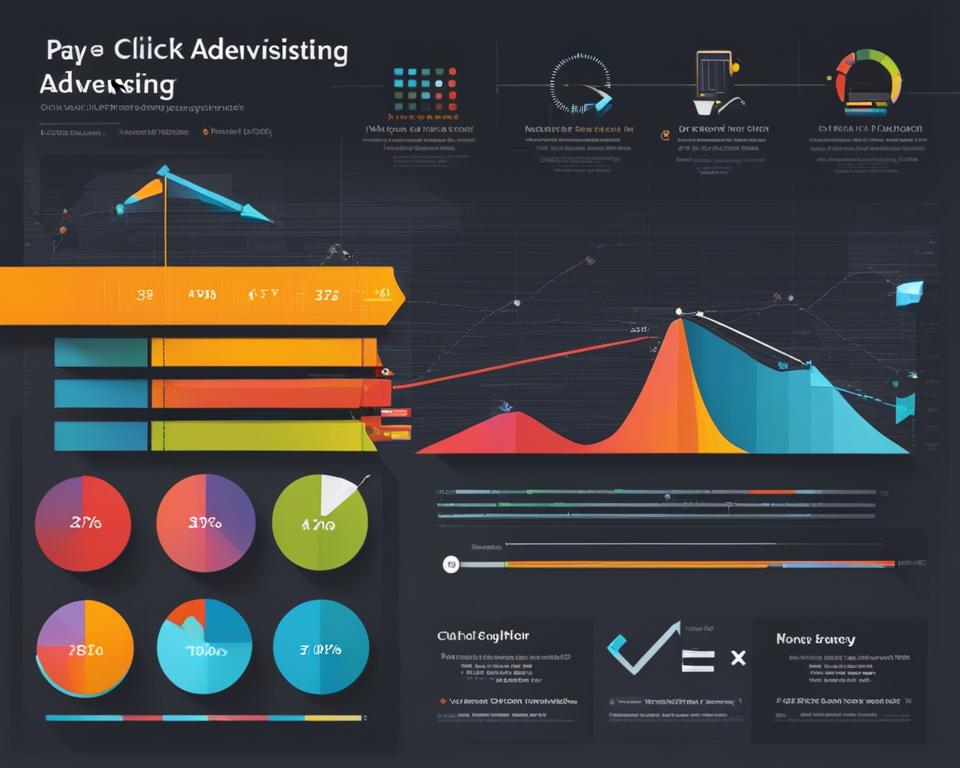Di era digital yang semakin maju, pemasaran secara online menjadi sangat penting bagi bisnis di Indonesia. Dalam dunia yang kompetitif ini, meningkatkan strategi digital marketing menjadi kuncinya. Dan salah satu cara terbaik untuk mencapai kesuksesan dalam strategi digital marketing adalah dengan menggunakan data-driven strategies.
Data-driven strategies membantu bisnis untuk mengoptimalkan kampanye pemasarannya dengan memanfaatkan data yang ada. Dengan menganalisis data, kita dapat memahami perilaku konsumen, tren pasar, dan preferensi pengguna. Ini memungkinkan kita untuk membuat keputusan yang lebih baik dan berbasis fakta dalam menyusun strategi dan merancang kampanye yang efektif.
Indonesia adalah salah satu pasar yang besar dan berkembang pesat dalam sektor digital. Dengan populasi yang besar dan semakin aktif menggunakan internet dan media sosial, bisnis di Indonesia memiliki peluang besar untuk memanfaatkan data-driven strategies dalam upaya pemasaran mereka.
Dalam artikel ini, kami akan menjelajahi pentingnya data-driven strategies dalam strategi digital marketing dan signifikansinya bagi bisnis di Indonesia. Kami akan menyoroti bagaimana memanfaatkan data dapat membuka potensi penuh dari upaya pemasaran Anda. Kami akan membahas berbagai aspek digital marketing, termasuk SEO services, social media marketing, dan advertising online, serta bagaimana semuanya berkontribusi terhadap keefektifan strategi digital marketing secara keseluruhan.
Teruslah membaca dan temukan bagaimana data-driven strategies dapat membantu bisnis Anda sukses dalam menjalankan kampanye digital marketing di Indonesia. Kami akan memandu Anda melalui langkah-langkah untuk mengoptimalkan kampanye, meningkatkan ROI, dan mendapatkan hasil yang lebih baik dalam dunia digital yang terus berkembang.
The Importance of Digital Marketing
In today’s online landscape, digital marketing plays a crucial role in helping businesses thrive and reach their target audience effectively. With the rise of technology and the increasing number of internet users, it has become essential for businesses to establish a strong online presence and utilize digital marketing strategies to stay competitive in the market.
Digital marketing encompasses various aspects, including online marketing, SEO services, social media marketing, and more. Each component contributes to the overall effectiveness of digital marketing strategies and helps businesses achieve their marketing goals.
Online Marketing
Online marketing, also known as internet marketing, involves promoting products or services through various online channels such as websites, search engines, email marketing, and online advertising. It allows businesses to reach a wider audience and generate leads by leveraging the power of the internet.
SEO Services
Search Engine Optimization (SEO) services are essential for improving a website’s visibility and ranking on search engine results pages. By optimizing website content, keywords, and technical elements, businesses can drive organic traffic to their websites, increase brand visibility, and attract potential customers.
Social Media Marketing
Social media marketing has become a powerful tool for businesses to engage with their target audience and build brand awareness. By creating compelling content, running targeted advertisements, and fostering meaningful interactions, businesses can leverage social media platforms to drive website traffic, generate leads, and enhance customer loyalty.
Incorporating these aspects of digital marketing into your overall marketing strategy can help your business gain a competitive edge, reach a broader audience, and achieve your marketing objectives. The next section will delve deeper into harnessing data for effective digital marketing campaigns.
Harnessing Data for Effective Campaigns
In today’s digital landscape, businesses have a wealth of data at their fingertips. Leveraging this data through data-driven strategies is crucial for enhancing digital marketing campaigns. By analyzing and interpreting the insights drawn from data, businesses can make informed decisions and optimize their marketing efforts. In this section, we will explore how data-driven strategies can transform content marketing and drive search engine optimization.
Informing Content Marketing Strategies
Data-driven strategies empower businesses to create targeted and relevant content that resonates with their audience. By analyzing customer behavior, preferences, and demographics, businesses can gain a deep understanding of their target market. This knowledge allows them to develop content that addresses their audience’s pain points, interests, and motivations.
Data analysis can also provide valuable insights into the most effective content formats, channels, and distribution methods. By identifying the types of content that drive engagement and conversions, businesses can allocate their resources strategically and maximize the impact of their content marketing efforts.
Driving Search Engine Optimization
Search engine optimization (SEO) plays a vital role in improving a website’s visibility and organic traffic. Data-driven strategies have revolutionized SEO by enabling businesses to optimize their websites based on data-backed insights.
Through data analysis, businesses can identify the keywords, topics, and content formats that resonate with their target audience. By aligning their SEO efforts with these insights, businesses can improve their search engine rankings and attract more qualified organic traffic.
Additionally, data-driven strategies allow businesses to monitor and track the performance of their SEO campaigns. By analyzing key performance indicators (KPIs) such as organic traffic, bounce rate, and conversion rate, businesses can continuously refine their SEO strategies to achieve better results.

| Data-driven Strategies | Benefits |
|---|---|
| 1. Customer Segmentation | Improved targeting and personalization of content |
| 2. Data-backed Decision Making | Optimization of marketing efforts based on insights |
| 3. Continuous Optimization | Refinement of strategies for better campaign performance |
| 4. Enhanced ROI | Maximization of return on investment through data-driven strategies |
Data-driven strategies in content marketing and search engine optimization have become essential for businesses striving to thrive in the digital era. By harnessing the power of data, businesses can create more targeted and effective campaigns that deliver measurable results. In the next section, we will explore how data-driven strategies can maximize ROI with pay-per-click advertising.
Maximizing ROI with Data-driven Advertising
In today’s competitive digital landscape, businesses need to deploy strategic advertising campaigns that deliver maximum return on investment (ROI). This is where data-driven advertising plays a crucial role. By harnessing the power of data, businesses can optimize their pay-per-click (PPC) campaigns to drive better results and achieve higher ROI.
Data-driven strategies allow businesses to target the right audience with precision. By analyzing user demographics, interests, and behavior patterns, businesses can optimize their ad targeting, ensuring that their ads are seen by the people most likely to convert. This targeted approach not only improves the effectiveness of the campaigns but also helps businesses save money by reducing ad spend on audiences who are less likely to engage.
Keywords are the foundation of successful PPC campaigns. With data-driven advertising, businesses can analyze search trends, identify relevant keywords, and optimize their campaigns to target those keywords effectively. By leveraging data, businesses can stay ahead of the competition, ensuring that their ads appear in front of users actively searching for products or services.
Bidding plays a significant role in the success of PPC campaigns. Data-driven insights allow businesses to make informed bidding decisions based on factors such as keyword performance, audience engagement, and cost per conversion. By leveraging data, businesses can set optimal bidding strategies to maximize their visibility and maintain a competitive edge in the online marketplace.
Monitoring and analyzing campaign performance is crucial for optimizing PPC campaigns. By closely measuring key metrics such as click-through rates, conversion rates, and cost per conversion, businesses can identify areas for improvement and make data-driven adjustments. This iterative process allows businesses to refine their campaigns continuously, driving better results and higher ROI over time.
“Data-driven advertising enables businesses to make informed decisions, optimize campaign performance, and drive better results. By leveraging data insights, businesses can target the right audience, optimize keywords and bidding, and continuously refine their campaigns, ultimately achieving a higher return on investment.”
By harnessing the power of data-driven advertising, businesses can supercharge their PPC campaigns and maximize their ROI. With the ability to optimize ad targeting, keywords, bidding, and overall campaign performance, data-driven strategies empower businesses to stay ahead of the competition and achieve their advertising goals.
Next, we’ll explore the significance of personalization in email marketing campaigns and how businesses can leverage data to create targeted and effective email marketing strategies.

Personalization and Data-driven Email Marketing
In today’s digital landscape, email marketing continues to be one of the most effective and cost-efficient ways to connect with customers. However, with the increasing volume of emails received daily, it’s crucial for businesses to stand out and deliver messages that resonate with their audience. This is where personalization and data-driven strategies come into play.
Personalization allows businesses to tailor their email content to individual recipients, ensuring that each message is relevant, engaging, and valuable. By leveraging data, businesses can gather insights into customer preferences, behaviors, and demographics to create highly targeted and personalized email campaigns.
One of the key benefits of data-driven email marketing is improved segmentation. By segmenting your email list based on various criteria such as location, purchase history, or engagement level, you can send targeted messages to specific groups of customers. This level of personalization enhances the customer experience and increases the likelihood of engagement and conversions.
Automation is another powerful tool in data-driven email marketing. With the help of marketing automation platforms, businesses can set up automated email workflows triggered by specific actions or events. For example, a customer who abandons their shopping cart can receive an automated email reminding them to complete their purchase. These automated emails can be personalized based on the customer’s browsing behavior, previous purchases, or other relevant data points.
“Personalization is not just about addressing someone by their name; it’s about delivering relevant content that adds value to their lives.”
By embracing personalization and data-driven strategies in email marketing, businesses in Indonesia can achieve higher open rates, click-through rates, and ultimately, better ROI. According to research, personalized emails result in 26% higher open rates and conversion rates than generic emails.
The Power of Personalization in Email Marketing
Personalization goes beyond simply inserting the recipient’s name into the email. It’s about understanding their needs, interests, and preferences to create a tailored experience. Here are some ways businesses can leverage data to personalize their email marketing:
- Create dynamic content that changes based on recipient data, such as location or past purchases.
- Use personalized product recommendations based on browsing or purchase history.
- Send targeted offers and promotions based on customer segmentation.
- Use personalized subject lines and preheader text to grab the recipient’s attention.
- Include personalized images, such as showcasing products the customer has shown interest in.
“Personalization is the key to unlocking the full potential of your email marketing campaigns.”
With the right data and tools, businesses can create highly relevant and personalized email experiences that drive engagement, build customer loyalty, and boost conversions. But it’s important to remember that personalization isn’t a one-time effort. To stay effective, businesses need to continuously gather and analyze data, optimize their email campaigns, and adapt their strategies based on customer behavior and preferences.
Next, we’ll explore how businesses can implement data-driven strategies in other areas of digital marketing such as content marketing and search engine optimization.
Conclusion
In conclusion, we have explored the power of data-driven strategies in the realm of digital marketing, specifically in the context of business operations in Indonesia. By leveraging the insights gained from data, businesses in Indonesia can enhance their overall digital marketing efforts and significantly improve audience targeting, resulting in better results and increased success.
Embracing data-driven strategies can be a game-changer for businesses looking to thrive in the digital era. In a rapidly evolving digital landscape, the ability to analyze and utilize data effectively provides businesses with a competitive advantage. By understanding user behavior, preferences, and trends, businesses can refine their marketing strategies, deliver personalized experiences, and optimize conversions.
Furthermore, data-driven strategies enable businesses to make informed decisions backed by real-time insights, allowing for agile and adaptive marketing campaigns. This approach fosters continuous improvement and optimization, ensuring that businesses stay relevant and competitive in the ever-changing world of digital marketing.
As businesses in Indonesia continue to navigate the challenges and opportunities of the digital age, the strategic use of data in digital marketing will play a pivotal role in achieving long-term success. By embracing data-driven strategies, businesses can unlock the full potential of their digital marketing efforts, connect with their target audience more effectively, and drive sustainable growth in the Indonesian market.
FAQ
How can data improve digital marketing strategies?
Data plays a crucial role in enhancing digital marketing strategies. By analyzing data, businesses can gain valuable insights into consumer behavior, preferences, and trends, enabling them to create targeted and personalized marketing campaigns. Data-driven strategies also help optimize SEO efforts, content marketing, and social media marketing, leading to better results and increased ROI.
Why is digital marketing important?
Digital marketing is essential in today’s online landscape as it allows businesses to reach a wider audience, increase brand visibility, and generate leads. Through channels such as SEO services, social media marketing, and online advertising, businesses can connect with their target customers in a more effective and measurable way, ultimately driving growth and success.
How can data-driven strategies improve content marketing and search engine optimization?
Data-driven strategies can significantly enhance content marketing and search engine optimization efforts. By analyzing data, businesses can identify the best-performing content types, topics, and distribution channels, ensuring that their content resonates with their target audience. Furthermore, data analysis can uncover valuable insights into keyword trends, search patterns, and user behavior, enabling businesses to optimize their SEO strategies and improve organic search rankings.
How can data maximize ROI in pay-per-click advertising?
Data-driven strategies are crucial in optimizing pay-per-click (PPC) advertising campaigns. By leveraging data, businesses can identify the most effective ad placements, target relevant keywords, and set optimal bid amounts. Data analysis also enables businesses to monitor campaign performance, identify areas for improvement, and make data-backed decisions to maximize ROI in their PPC advertising efforts.
How can data facilitate personalized and effective email marketing campaigns?
Data is instrumental in personalizing and improving email marketing campaigns. By utilizing data, businesses can segment their audience based on demographics, behavior, or preferences and tailor their email content accordingly. Furthermore, data analysis enables businesses to automate email marketing processes, such as sending targeted follow-up emails or abandoned cart reminders, increasing engagement and conversions.
How can data-driven strategies benefit digital marketing in Indonesia?
Data-driven strategies have immense potential to benefit digital marketing efforts in Indonesia. With a rapidly growing digital landscape and diverse consumer base, leveraging data allows businesses to better understand the unique needs and preferences of Indonesian consumers. By harnessing data insights, businesses can create personalized and targeted marketing campaigns that resonate with the local audience, resulting in improved customer engagement and business growth.






